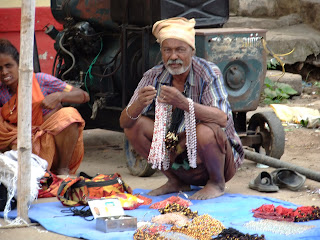 This is the board which welcomes while going up to our Hotel.
This is the board which welcomes while going up to our Hotel.
Recently (August 9-11, 2011) I had the opportunity to take part in a national workshop which was held in Patnitop which is situated in the State of Jammu & Kashmir. This was a memorable occasion, and the beauty of the place, still lingers in my mind. The place where we were staying was always engulfed in fog, sometimes drizzling rain drops, and as we sat in the top floor of the hotel where the meeting was going on, we could see clouds passing by us. The Wikipedia gives the following information about Patnitop.
Patnitop or Patni Top, is a hill top tourist location in Udhampur district, in Jammu and Kashmir, India, on the National Highway 1A, on the way from Udhampur to Srinagar, 112 km from Jammu. Situated on a plateau in the Shiwalik belt of the Himalayas, Patnitop sits at an altitude of 2024 metres. The river Chenab flows in close proximity to this location.
Origin of the name 'Patnitop' is a distortion of the original name of Patan Da Talab meaning "Pond of the Princess". In olden times a pond existed in the meadows and the kings princess often used to have her bath there. Part of the pond still exists near the youth hostel. It may be that the British had difficulties recording an English spelling of an Indian name correctly in their revenue records. Over the years the name changed from "Patan Da Talab" to Patnitop.
 The place where we stayed for the workshop.
The place where we stayed for the workshop.
The tall Cedar (Devadaru) trees add a mystic look to the area and the beauty of the place is beyond words. May be I will write about the place again with more images.








